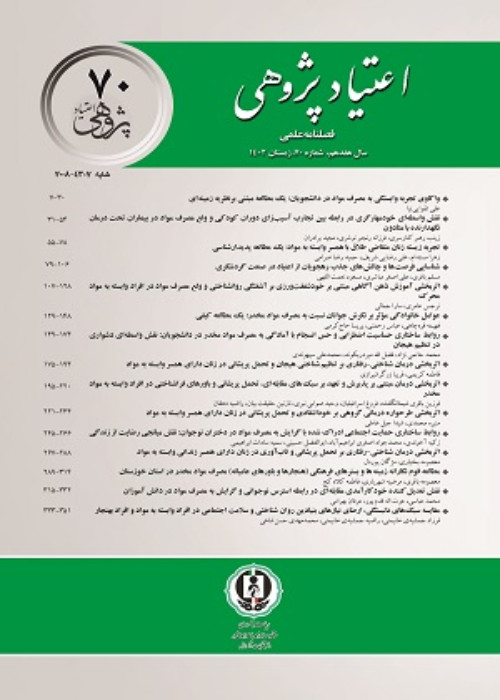The Effectiveness of Emotion Regulation Training on Marital Adjustment and Feeling of Loneliness in Women with Substance-Dependent Spouses
The current research was conducted to determine the effectiveness of emotion regulation training on marital adjustment and feeling of loneliness in women with substance-dependent spouses.
The research was quasi-experimental with a pre-test and post-test design with a control group. The statistical population of this research included all women with substance-dependent spouses referring to public counseling centers in the city of Yasuj. Among them, 32 women were selected by purposeful sampling method and randomly assigned to experimental (n= 16) and control (n=16) groups. The subjects of the experimental group received the emotional regulation training program for ten 90-minute sessions. Participants completed the social and emotional loneliness scale and the dyadic adjustment scale in the pre-test and post-test stages. The multivariate covariance analysis was used to analyze the data.
The findings showed that after controlling the pre-test effect, the effect of emotion regulation training in the experimental group on marital adjustment and feeling of loneliness of women with substance-dependent spouses was significant. In other words, the results showed a significant decrease in feeling of loneliness and a significant increase in marital adjustment in the experimental group compared to the control group in the post-test.
Emotion regulation training is effective in increasing marital adjustment and reducing feeling of loneliness of women with substance-dependent spouses. The result of this research can be used in educational and therapeutic areas related to substance dependence and its consequences.
- حق عضویت دریافتی صرف حمایت از نشریات عضو و نگهداری، تکمیل و توسعه مگیران میشود.
- پرداخت حق اشتراک و دانلود مقالات اجازه بازنشر آن در سایر رسانههای چاپی و دیجیتال را به کاربر نمیدهد.


